Tuesday, March 10, 2015
What if you don't have time to write?
by
Merrie Destefano
I'm sure there are writers out there who have plenty of time to write. Their houses never get dirty, their dogs don't need baths, their children don't need help with their homework and their husbands/wives don't expect dinner. On top of that, these lovely writers look amazing all the time. They don't gain weight from too many hours spent in front of a computer and they never have problems paying their bills, because everything they write becomes a best-seller.
These writers, bless their hearts, are myths.
If you are fortunate enough to make a living writing, there's a good chance that you're writing more than fiction and that you have a significant other who helps pay the bills.
The Real World
I currently juggle magazine editorial work with novel writing. Between working as the editor on a variety of publications like Vintage Gardens magazine, American Farmhouse Style magazine, Victorian Homes magazine and Zombies magazine (you knew there had to be something weird and slightly supernatural in that mix, right?), I write fiction.
But, it's not easy to find time to write the stories I love, because at this point in my career, those stories don't pay the bills.
[Cue a heavy sigh here]
Giving Up
I almost gave up on writing because of this. I almost gave up something I love—just because I was only looking at the "end goal," without realizing that the best part of this journey is the journey itself. I love writing even more than I love being published. Once I realized that, I discovered that getting a book published was no longer my end goal.
Writing the absolute best book that I can is my goal. And I want to write as many books as I can in the amount of time I have left on earth.
My New End Goal
But even when I came to this conclusion, I still didn't know how to accomplish my new "end goal." I still had to find time to write when my schedule was full. Like every other person who works full time, I have a spouse who wants to spend time with me, dogs who need to be walked, friends who need to be nurtured, and a house that refuses to stay clean no matter how often I threaten it.
I finally realized I was going to have to steal time from my day if I wanted to write. I was going to have to be super efficient with that stolen time. And I was going to need a community to support me. I would never be able to do this alone. Finding the right community for this endeavor was my first step.
Finding a Community
I found part of my community on Twitter and part of it at a writer's conference. If you want to discover other writers, you have to go where they go. There are all sorts of groups out there, on Meetup.com and on Twitter and Facebook, and I'm sure there are other places to find like minds. NaNoWriMo is another place to meet writers. Once you find a good group, stick with it. These are the people who will support you and cheer you on throughout your career, just as you support them.
Making a Commitment
Once I found a good mix of writers, I discovered we liked to "work together." We did word sprints together, we plotted together, we set goals together. We made each other accountable. And believe it or not, this really helped. You don't have to be best friends with someone to work together and help one another, but you do have to treat each other with respect. You have to care about their goals as much as your own.
Finding Time to Write
So how did all of this help me find time to write? I realized that when I worked within the confines of a community, I was driven to write more, to write faster, and to write better. Sometimes we'd challenge each other to a word sprint on Twitter, sometimes there would be an hour-long sprint mentioned on Facebook, sometimes we'd start a writing sprint through an e-mail prompt. We would give each other a time limit, then come back and state how many words we got. We made ourselves accountable, right there in the midst of social media, in front of God and the world. Maybe nobody was listening but us. It didn't matter. We were listening and we were getting our stories written. Together.
Using this method and having the support of my community, I finished one book and got half way through another, within a few months.
First Draft in Three Months
When I was writing, I would give myself about an hour a day to write. Even on my busiest of work days, I would take an hour for lunch and that was when I would write. When I got back to my computer (for work purposes), I would eat lunch at my desk. Since I worked at home and made my own hours, I could sometimes write for longer than an hour, as long as I got my other work done.
If I followed this method, I could usually finish a first draft of a manuscript within three or four months. This included time for me to get lost and confused, time to throw pages away and to rework the plot. It also allowed me time to fully immerse myself in the story, to the point that it flowed without very much thought. If I was writing almost every day, the story would come alive—it would live and breathe inside me and it would flow onto the page.
I had to be careful not to criticize my first draft. In fact, sometimes what I did during my one-hour writing sprint was just throw down a rather detailed outline of the next scene. Later, if I had more time to write in the evening or on the weekend, I would go back over that draft and discover it held not one scene, but almost ten pages of story material and three scenes.
This is a method that I still use. It doesn't solve all my problems. For instance, I found time to write, but I still haven't found time to edit. I'm working on carving out some weekend blocks of time to do that. It's still hard when I'm in the midst of magazine deadlines to do that, but I know I have to be patient. I don't want to rush the final step in creating a book, so perhaps my editing cycle will have to wait until my work schedule lightens up a bit.
What about you? What tips or techniques have you discovered along the way that have you become a better writer? Do you have trouble finding time to write? Let me know in the comments. I'd love to hear from you!
.............
Merrie Destefano is the author of Afterlife, Feast and Fathom and you can learn more about her work by visiting her website, MerrieDestefano.com.






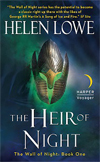
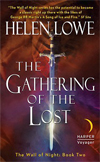
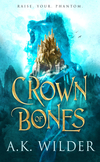
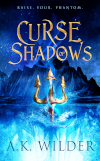
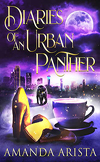
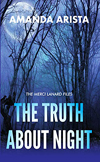

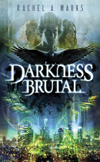
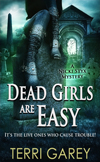
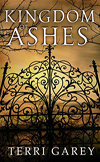
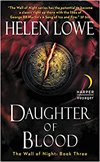
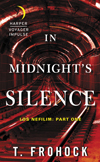
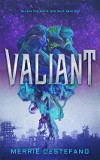


7 comments:
Great advice. It's so easy to get discouraged in this business. Thanks for sharing how you reconnected to what was important.
Thank you for the comment, Dani! I completely agree. If I get disconnected and forget the reasons behind why I do this, then I have no motivation. I wish you the best in your writing career! =)
Whew. Glad you didn't end up quitting. I've read a few of your stories and loved them. =)
Whew. Glad you didn't end up quitting. I've read a few of your stories and loved them. =)
Amen, sister!
I like the idea of a digital writer accountability.
Thank you! Amanda
Thank you very much, Patricia! <3
Amanda, Yes. Love that title. Digital Writer Accountability. Sign me up! LOL.
Post a Comment